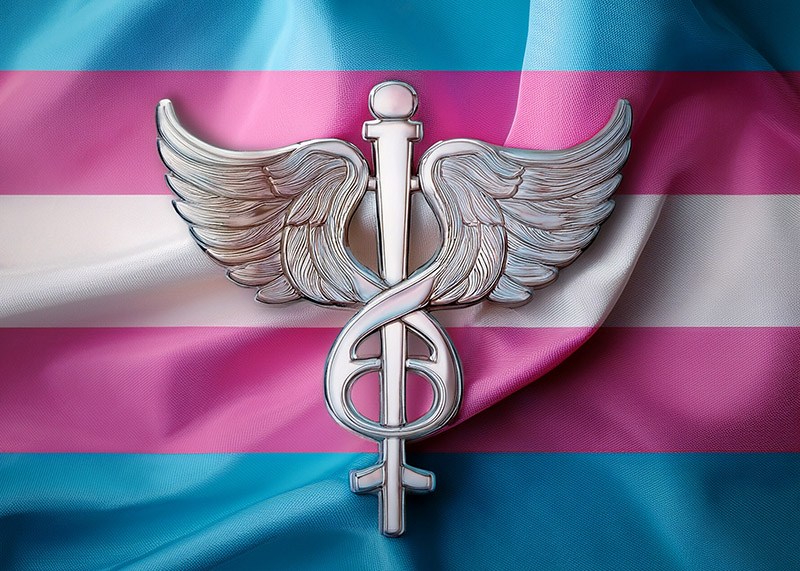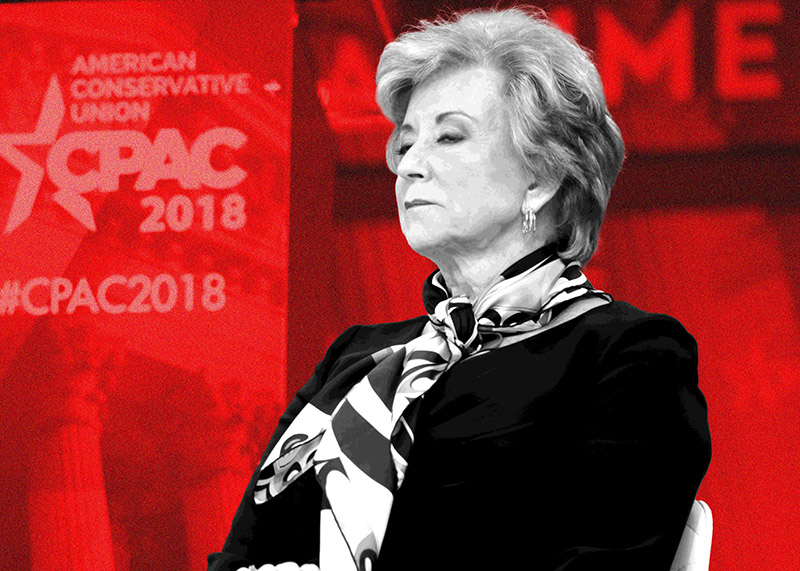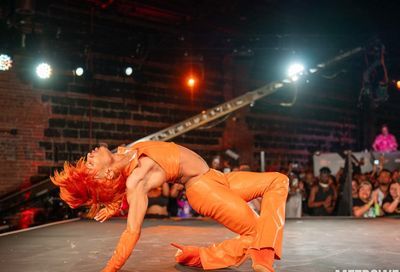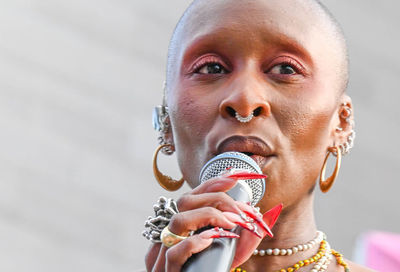Trans Athlete Wins Lawsuit Against USA Powerlifting
Court finds organization's transgender policy is discriminator and violates LGBTQ protections in Minnesota's Human Rights Act.

A Minnesota weightlifter has won a discrimination lawsuit against USA Powerlifting, with a state judge finding that the organization’s policy restricting transgender athletes from competing in women’s competitions violated her civil rights.
JayCee Cooper trained to compete for the USA Powerlifting Minnesota State Bench Press Championship and Minnesota Women’s State Championship.
When she submitted her application, she included a therapeutic use exemption seeking to allow her to be on hormones to treat her gender dysphoria, along with letters from her health care providers.
But Cooper was informed by the organization that she would not be allowed to participate in competitions designated for women, because as someone who had previously undergone male puberty, she enjoyed an unfair competitive advantage over cisgender female competitors.
She subsequently filed a discrimination claim with the Minnesota Department of Human Rights, alleging that Powerlifting USA’s policy violated prohibitions against LGBTQ protections contained in the Minnesota Human Rights Act.
In 2020, USA Powerlifting announced it planned to create a separate division for transgender competitors. But Cooper argued that such a policy did not provide a viable chance to compete.
She attempted to negotiate with USA Powerlifting, but after failing to reach an agreement, she enlisted the help of the Minnesota-based firm Gender Justice and sued the organization in Ramsey County District Court.
In the lawsuit, filed in January 2021, Cooper argued that the policy prohibiting transgender athletes from competing discriminated against them based on their gender identity.
In a ruling earlier this week, Judge Patrick Diamond ruled that USA Powerlifting had discriminated against Cooper on the basis of sex and sexual orientation, and ordered USA Powerlifting to submit a revised policy within the next 14 days.
A hearing will be held on May 1 to determine if Cooper will be awarded any damages.
“By denying Cooper the right to participate in the female category, the category consistent with her self-identification, USAPL denied her the full and equal enjoyment of the services, support, and facilities USAPL offered its members,” Diamond wrote.
“It separated Cooper and segregated her and, in doing so, failed to fully perform the contractual obligations it agreed to when it accepted Cooper’s money and issued Cooper a membership card.”
Cooper said she was relieved by the court’s decision.
“I think we needed a win here and it feels great to get that,” she told Minneapolis NBC affiliate KARE-TV.
“After years of experiencing discrimination from USA Powerlifting, and the backlash that has occurred due to that, of course I have complex feelings about the sport,” Cooper said. “But I think that this win is a representation of where we can move forward.”
She also credited transgender pioneers with helping pave the way for her eventual victory.
“Marsha P. Johnson, and the Stonewall riots, and the plethora of Black trans advocates and activists throughout history — and the way they’ve led this fight — I am just one small piece that is built off of that,” Cooper said.
USA Powerlifting President Larry Maile said in a statement that his organization disagrees with the court’s decision, and will be exploring all its options, including a possible appeal.
“Our position has been aimed at balancing the needs of cis- and transgender women, whose capacities differ significantly in purely strength sports,” Maile said. “We respectfully disagree with the Court’s conclusions.”
Over the past few years, a number of athletic organizing bodies have announced updated policies regarding transgender participation. Earlier this year, the World Boxing Council announced it would introduce a separate transgender category on the grounds that athletes assigned male at birth have an unfair advantage over those assigned female at birth.
Last year, the International Olympic Committee announced that transgender and intersex athletes would not have to undergo medically unnecessary surgical procedures or treatments in order to compete in their gender identity.
Meanwhile, The NCAA, the governing body in college sports, adopted a sport-by-sport approach, where international governing bodies would determine eligibility based on individual criteria.
For example, after transgender UPenn swimmer Lia Thomas won a national title at the NCAA Division I Championships, because there is no international policy currently in place for aquatic events, USA Swimming adopted its own criteria for eligibility.
Under that policy, transgender female athletes to go before a three-person panel of independent medical experts, who will determine whether the swimmer’s prior physical development as a man gives them an unfair competitive advantage.
Athletes will also be required to provide bloodwork showing the testosterone levels in their blood are below a certain threshold.
Support Metro Weekly’s Journalism
These are challenging times for news organizations. And yet it’s crucial we stay active and provide vital resources and information to both our local readers and the world. So won’t you please take a moment and consider supporting Metro Weekly with a membership? For as little as $5 a month, you can help ensure Metro Weekly magazine and MetroWeekly.com remain free, viable resources as we provide the best, most diverse, culturally-resonant LGBTQ coverage in both the D.C. region and around the world. Memberships come with exclusive perks and discounts, your own personal digital delivery of each week’s magazine (and an archive), access to our Member's Lounge when it launches this fall, and exclusive members-only items like Metro Weekly Membership Mugs and Tote Bags! Check out all our membership levels here and please join us today!



































You must be logged in to post a comment.